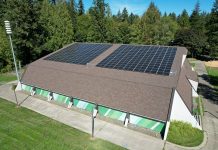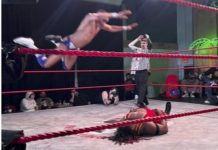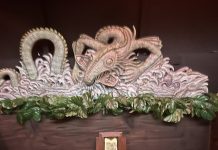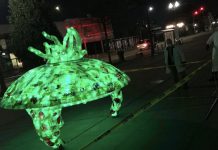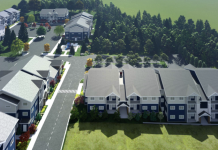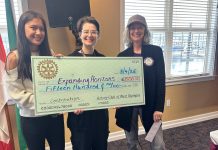Don Farwell could see his future just over the water. He just didn’t know it yet. The Seattle-born musician, who grew up on the south end of Vashon Island, would often stand at a ferry dock at the bottom of the island and stare out and see what was beyond. That regularly included an old copper smelter on the edge of the city of Ruston, with its large smoke stacks billowing. While that facility is no longer in the region, Farwell has planted his new business flag right where his gaze fell as a boy. The longtime Seattle-based recording engineer and owner of Earwig Studios is establishing a new home in Pierce County, bringing his keen ear, warm style and accomplished resume to the area.
“I grew up on the south end of Vashon Island,” Farwell says. “So, I would always look at Tacoma from where I lived. I have these nostalgic childhood memories of going into Tacoma [as a boy]. It’s always been one of my favorite places. I love it down here.”
It’s not breaking news to report that many in the Emerald City and King County have had to leave Seattle and relocate to places welcoming more reasonable budgets. And Farwell is one of those many. The lease for his studio, formerly located in the Fremont area of Seattle, was up, and he and his wife, who was already working remotely for a Tacoma-based company, decided to make the trek 45 minutes south and plant roots. Farwell, who has worked with Ryan Lewis, The Black Tones, Warren Dunes and other noteworthy groups in the region, has never taken on corporate clients. Despite the fact that his music has been released by Sub Pop and played often on KEXP, his aim has always been to help local bands make the records they dreamed of.
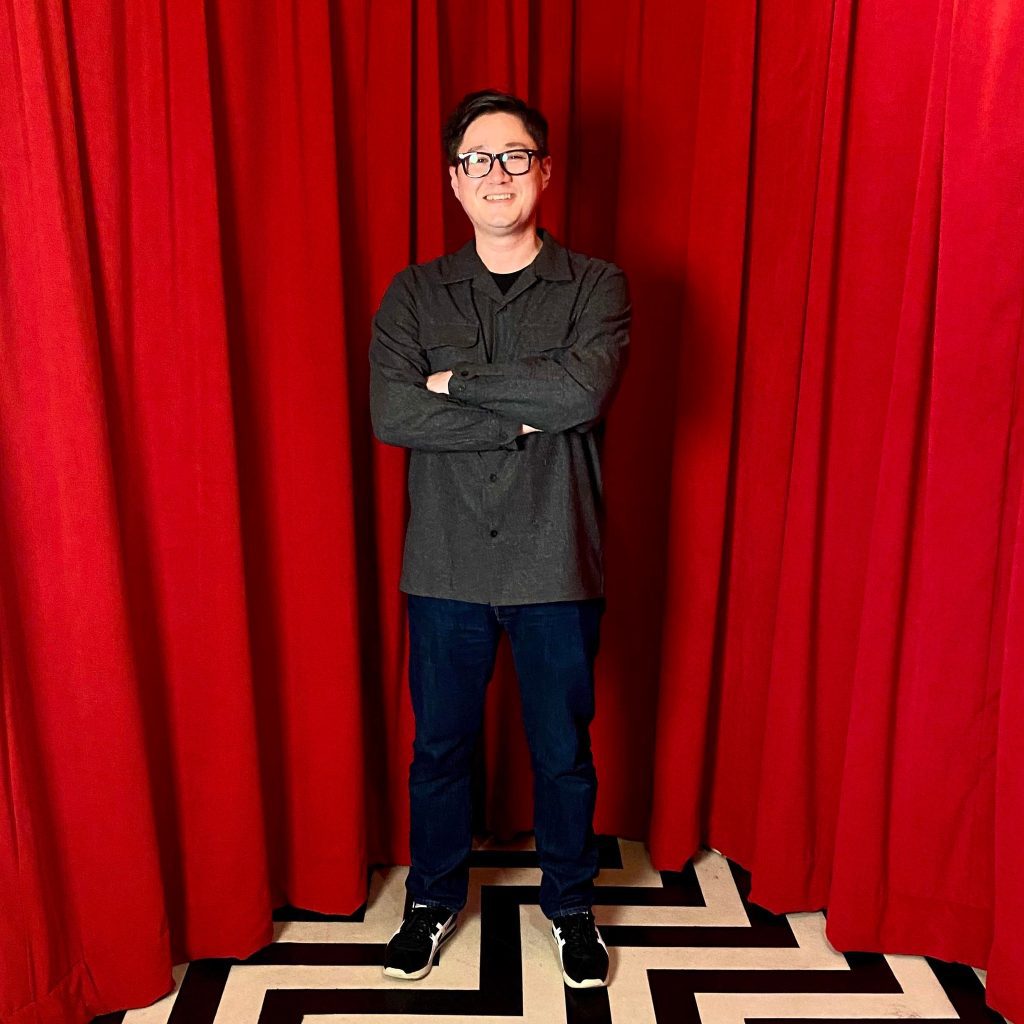
“I have largely focused on local musicians,” he says of his decades-long career. “So, I’ve always been pretty aware that making music is not a big money-maker for most people. I have always strived to be an affordable option for musicians.”
Seattle’s loss is Tacoma’s gain. Indeed, Farwell recently bought a bit of land off I-5 near that old copper smelter and is in the process of setting up a permanent shop there in Ruston. In the meantime, he is working out of several studios in Pierce and King counties, as well as mixing in Tacoma businessman Chris Blount’s On Purpose Studios. Farwell says he hopes to open his permanent spot this winter (and for those looking to book with him, check out his studio’s website here). He has already begun to ingratiate himself in Tacoma, too, with local bands, having recently tracked the punk group, Old Growth.
But when it comes to Farwell, it’s not always about what he’s done—rather, it’s how he does it. When he talks about recording bands, he mentions the “psychology of making a record,” which includes several aspects. He must be technically sound with his equipment, of course. But Farwell is also a master at putting artists at ease. A musician himself, he knows what goes into writing, recording and completing an album. It involves hard-earned money, it takes lots of time and it is an intimate, vulnerable task. For a region known for the “Seattle Freeze,” Farwell thaws a moment in time as well as any.
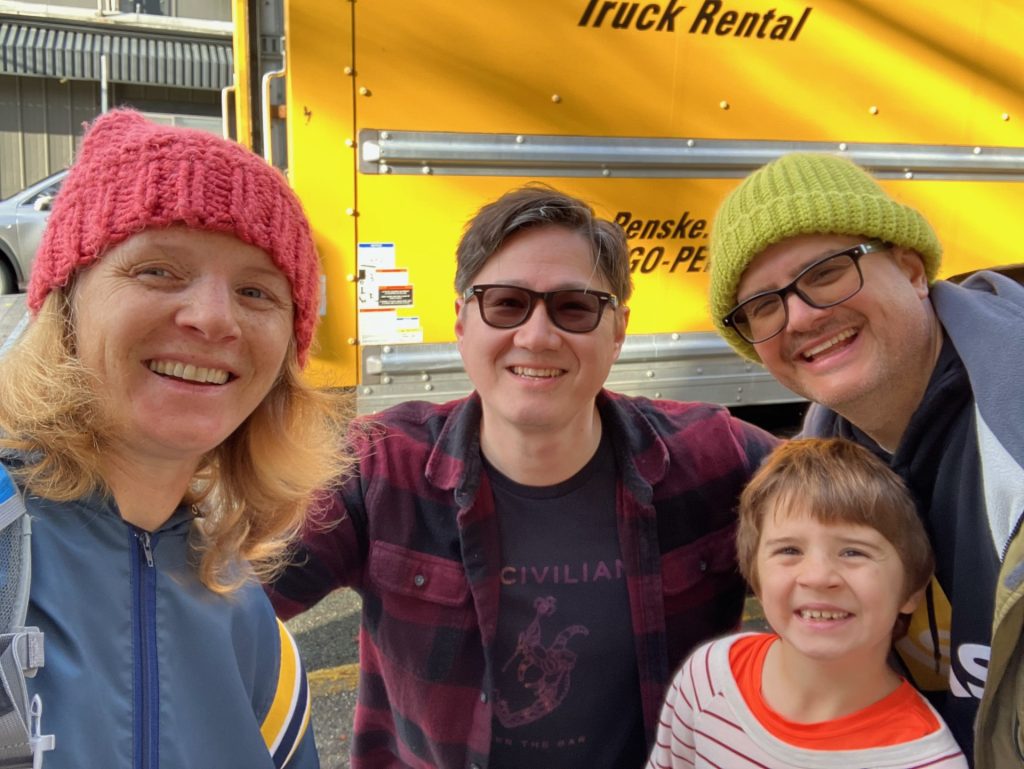
“The more I make records,” he says, “the more I’ve gained insight about working with people and understanding the kinds of obstacles that might come up for people in the studio and knowing how to deal with those.”
He knows that it’s paramount to always keep the session “flowing.” When there is a roadblock, he suggests a pivot—either to a new song, to a quick conversation or to a respite. Something to keep the view off the impediment and focused on new ground. He knows the clock on studio time is always ticking. There is no sense in getting stuck in the mud. “On the surface,” he says, “that sounds very simple. But I’ve spent most of my adult life trying to understand that equation. I’ve thought about from the minute someone arrives in the studio what am I going to do and say to try and create the right kind of space.”
Like an interviewer or sculptor, he drops his guard down, which in turn helps the people he works with do the same. Walls impede connection. So Farwell demolishes his for the sake of the collaboration. It’s the kind of insight one learns from a lifetime on the job. For Farwell, his career began as a teen at the University of Washington but then transitioned, after he dropped out to pursue music, to Shoreline Community College. From there, he moved again to Evergreen in Olympia, where he finished his final two years of school, taking every music and engineering course he could. And as a senior, when one of his classmates said his parents owned a studio, and they needed help for the summer, Farwell jumped at that, not knowing then that his friend’s parents owned the ornate Pacific Northwest studio, Bear Creek.

On his first day at the historic place, which is an old remote barn repurposed into a music haven, Farwell helped move fence posts. He helped with yard work. “I was always willing to do whatever it takes,” he says. From there, he assisted on sessions. He even got his name in the credits of a Foo Fighters album, “The Colour and the Shape,” for his help. His first real assignment at Bear Creek was a band called Sofa Glue in his early 20s—an album he took incredibly seriously, though the outfit was not very well known. At Bear Creek, he worked with other big-name artists, including Cream’s Ginger Baker. In the end, Farwell stayed there for three years, hired on as studio manager after his first summer.
“Helping musicians finish albums is definitely the most satisfying thing for me,” Farwell says. “People have no idea how hard that is.” Creating something out of nothing is, of course, difficult. Heck, even getting out of bed can be difficult for many these days. But it’s music, says Farwell, that gives him both hope and a compass. And it’s thanks to people like him who get the stuff down on wax, disc or digital that the rest of the world can enjoy it on repeat for years to come. In this way, Farwell is like a bridge between two things. Starting at one edge of the island and extending out to another.
“I think music is the quickest, easiest way to raise [one’s] life condition,” Farwell says. “I love the way that people can find common ground. I work with people who definitely have different life viewpoints than me, but when we’re making music, it doesn’t matter.”





